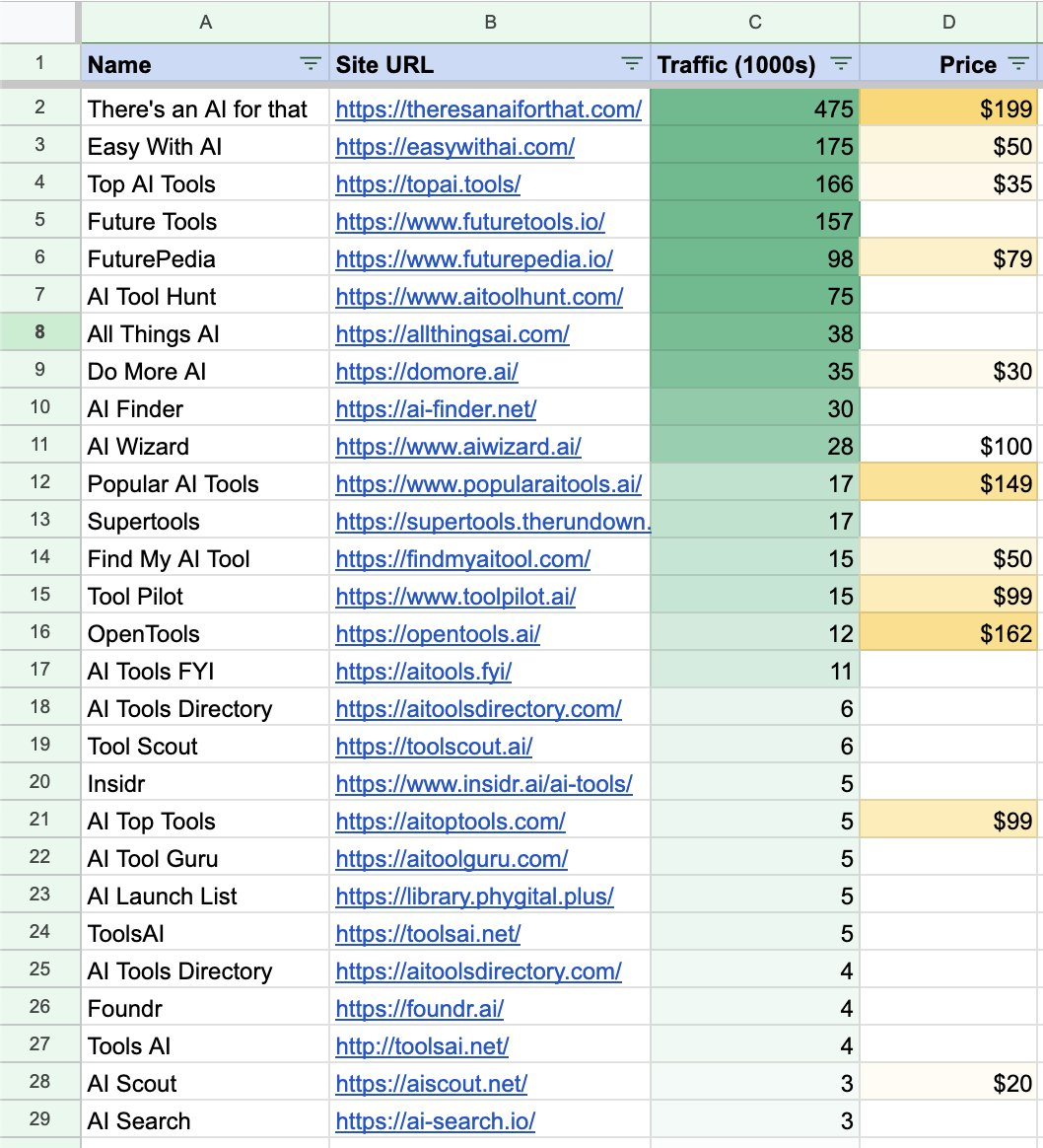Indie hackers guide to the backlinks galaxy
How to get your first quality backlinks on a budget without being an SEO expert or having coding knowledge
Introduction
- Explain the two main types of backlinks:
- Backlinks that websites naturally link to your content (they found you)
- Backlinks that you proactively acquire through outreach and promotion (you pushed yourself)
This post will focus on actionable strategies for the second type, as they far more easier to get. Most of them will be free (if you can wait) or on the cheap side.
Why backlinks are important
- Helps you target the most relevant, high-quality link opportunities
- Gives you more control over your link profile
- Necessary to compete in tough niches where links don't come naturally
The different ways of getting backlinks
Ahrefs gives a good overview of the 4 fundamental strategies (add, earn, ask and buy) of link building and backlinks.
Natural way of getting backlinks
- Guest blog on high-quality sites in your niche.
- Create exceptional content that is worthy of being linked to.
- Reach out to bloggers and websites in your niche and offer to contribute guest posts
- participate in online discussions and forums related to your niche, and leave links to your site as appropriate.
- Optimize your website for search engines so that you rank higher in the search results pages.
Especially the social backlinks take way to long before getting positive results. The key here, is to be a bit pushy and to reap the low hanging fruit of directories (and in second order content-driven sites that are willing to link to low-ranking sites like you)
But why?
I see those initial backlinks as part of the bootstrapping package (just like picking a name, domain, an initial landing page, ...). I would start thinking about backlinks as soon as you have a v1 of your landing page. Many of the websites you will contact in one of the steps explained later on, require an up and running website (to automatically scrape data from or you need to provide screenshots of the product)
I would not consider those initial backlinks as "traffic generators". If you do get traffic, I would consider that a bonus. But once you have a domain ranking > 20, all your SEO and content efforts are magnified and will have effect. And ranking in top-3 is what gives you traffic 1.
Why another guide?
My goal is to find easy targets relevant for my niche.
The usual tools (Ahrefs, Semrush or Moz) are expensive, certainly if you would only buy them for backlink purposes. You could use the free backlink checker of Ahrefs but they do not allow data exports
I'll stick with Camelrank from Yvan Derogis (I've met him in 2017 when we were both part of the ING FinTech village incubator program). Camelrank uses SEO data from DataForSEO and is perfect for my purpose. And it costs you only $4 !
The steps I'll explain next, don't require coding knowledge or take a lot of time. If you want to do this at scale, please reach out. I have a fully automated setup for gathering new opportunities, understanding for which niche they might be relevant, submitting, ...
But you don't need all of this to get bootstrapped :-) 30mins to following the steps and a few hours to complete the submissions.
Here you see the effect in practice:

Create your specific list of backlinks
There are many free backlinks sites, but most of them are heaviliy biased or contain only the larger websites that often do not give you a do-follow link. This means that they can result in extra traffic, but not in domain authority.
That is why I always start from relevant sites within my niche:
- Make a list of 10 or more relevant websites
- Fetch the raw backlink data via Camelrank
- Process the backlink data in Google sheets
- Put on your submission hat
For the purpose of this guide, I'll work with a running example.
Step 1
- llook for top products on producthunt, your competitors, tools you use, ...
Step 2
Step 3
Step 4
Handy Google Sheets functions
Extract the domain name from an URL
=REGEXREPLACE(A374,"http\:\/\/|https\:\/\/|\/.*|\?.*|\#.*","")
Check if a URL contains a specific URL parameter, for examle ref=
=IFERROR(IF(SEARCH("ref=", C374), 1), 0)
Bash oneliner
You could also get a simple list with this bash oneliner:
cat backlinks_*.csv|grep -E "ref=|via=|r=|referrer=|referer=|from="|grep "yes"|cut -f1 -d","|cut -d"/" -f3|sort|uniq -c|sort -r|grep -v "1 "
The last grep makes sure that we don't include domains with only a single occurence. You can adapt it to your own threshold, of course.
Results from a random bunch of backlink files:
110 www.monkeyaitools.com
19 www.producthunt.com
15 www.uneed.best
15 browsing.ai
11 www.tinyalternatives.com
11 microlaunch.net
10 launched.io
10 devhunt.org
9 www.ainave.com
9 indiepa.ge
Other links
Just a quick glance at Twitter and some sites, gives another list of opportunities, for example for AI tools, with extra information about traffic and submission costs:

- https://bestofai.com/
- https://inventlist.com/
- https://www.digitalsamaritan.co/
- https://jackmateo.ai/
- https://www.busywith.ai/
Some links gathered from submission tools
- https://devhunt.org
- https://betalist.org
- https://futurepedia.com
- https://shno.co
- https://stripe.com/en-be/climate
- https://yourstory.com
- https://producthunt.com
- https://libhunt.com
Services that submit for you
- https://www.boringlaunch.com/
- https://backl.io/directory
- (dm me if you want to add yours, I'm not affiliated with any service)
Obviously, you can reuse the result as most opportunities for backlinks are relevant for a rather broad set of projects. I only repeat the process for niche projects, as I might get also more niche opportunities.
Footnotes
Footnotes
-
An estimated 75% of Google search traffic gets eaten by the top-3 results. ↩